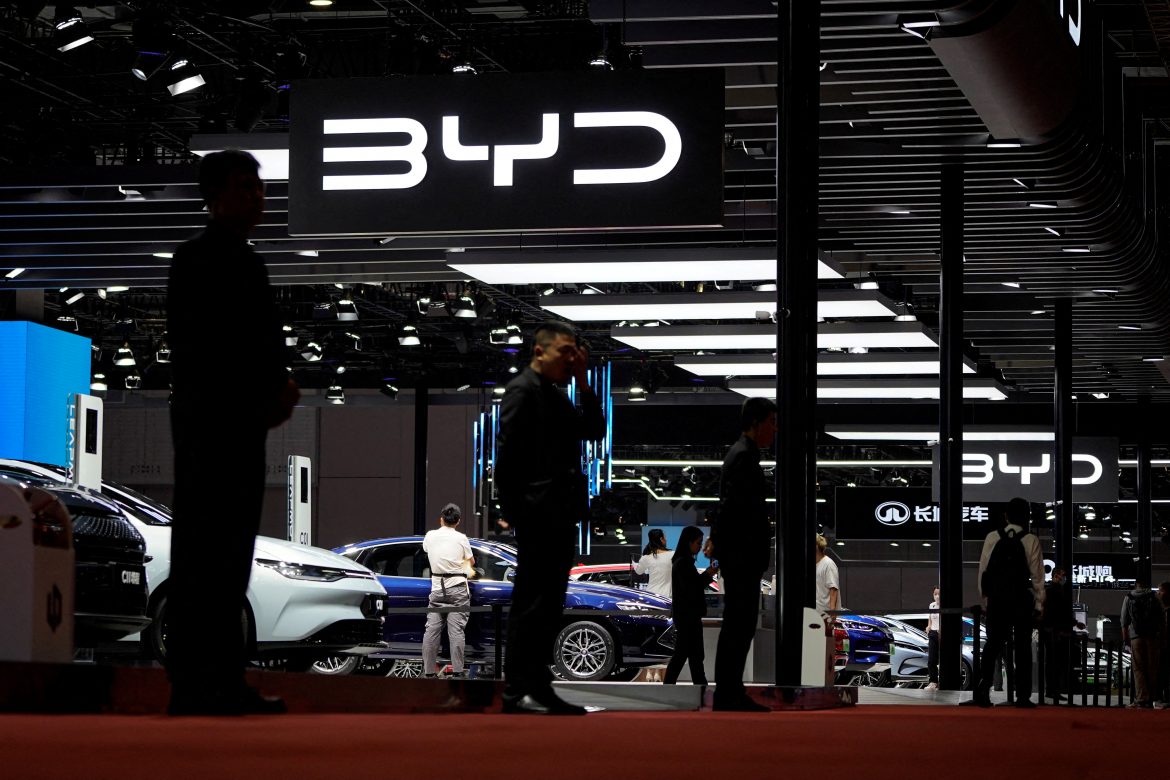Chinese electric vehicle (EV) manufacturer BYD Co Ltd has announced a landmark agreement with the Turkish government to establish a USD 1 billion production facility in Turkey. This ambitious project, slated for completion by the end of 2026, aims to produce 150,000 vehicles annually. This development, heralded by Turkey’s Industry and Technology Minister Mehmet Fatih Kacir, signals a significant stride in Turkey’s automotive sector and highlights BYD’s strategic response to recent EU tariff hikes on Chinese EVs.
High-level talks and strategic partnerships
Minister Kacir shared images on social media platform X of Turkish President Tayyip Erdogan meeting BYD Chief Executive Wang Chuanfu at the official deal-signing ceremony. “We envisage that BYD will establish an electric and rechargeable hybrid car production facility with an annual capacity of 150,000 vehicles and an R&D centre for mobility technologies in our country, with an investment of approximately USD 1 billion,” Kacir announced.
The new facility is expected to create up to 5,000 direct jobs, contributing significantly to the local economy. This investment follows extensive negotiations with Chinese officials since a high-level Turkish delegation visited China in December 2023.
BYD’s strategic expansion in Europe
The agreement comes at a critical time for BYD, the world’s largest EV producer, as it seeks to bolster its presence in European markets. Last week, the European Union raised tariffs on Chinese EVs to protect its domestic industry. However, Turkey’s customs union with the EU offers BYD a strategic gateway to European markets. “This deal could ease the access of investors, including BYD, to European markets,” Kacir noted, underscoring the significance of the customs union in facilitating smoother market entry.
Expanding production capacity and technological development
BYD’s investment in Turkey is part of a broader strategy to expand its production capacity and technological capabilities. China’s state-backed Securities Times reported that BYD plans to build a factory for core parts of new energy vehicles to support its existing production facility in Shenzhen. This move reflects BYD’s commitment to enhancing its production efficiency and ensuring a steady supply chain for its global operations.
Collaborations and future prospects
In addition to BYD’s investment, Turkey is also exploring potential collaborations with other Chinese automakers. Last week, Zafer Sirakaya, a deputy chairman of Turkey’s ruling AK Party, revealed that Chinese carmaker Guangzhou Automobile Group (GAC) is in talks with Turkish EV manufacturer TOGG about a possible joint production venture. “GAC’s top management plans to visit TOGG in Turkey this month,” Sirakaya said, indicating the growing interest of Chinese automakers in Turkey’s burgeoning EV market.
Turkey’s growing EV sector
Turkey’s automotive industry has been steadily evolving, with significant investments in EV technology and production. The establishment of the BYD plant is expected to catalyse further growth in the sector, positioning Turkey as a key player in the global EV market. The integration of advanced R&D facilities will also enhance Turkey’s capabilities in developing cutting-edge mobility technologies.
BYD’s $1 billion investment in Turkey marks a pivotal moment for both the company and the Turkish automotive industry. As BYD expands its global footprint and adapts to new market dynamics, the new facility will play a crucial role in meeting the growing demand for electric vehicles. Moreover, Turkey’s strategic location and customs union with the EU provide BYD with a valuable gateway to European markets, positioning the company for continued success in the competitive EV landscape.
This partnership not only underscores the deepening economic ties between Turkey and China but also highlights the transformative potential of strategic investments in the automotive sector. As Turkey continues to attract significant investments from global automotive giants, its role in the global EV market is set to grow, fostering innovation and driving economic growth.



